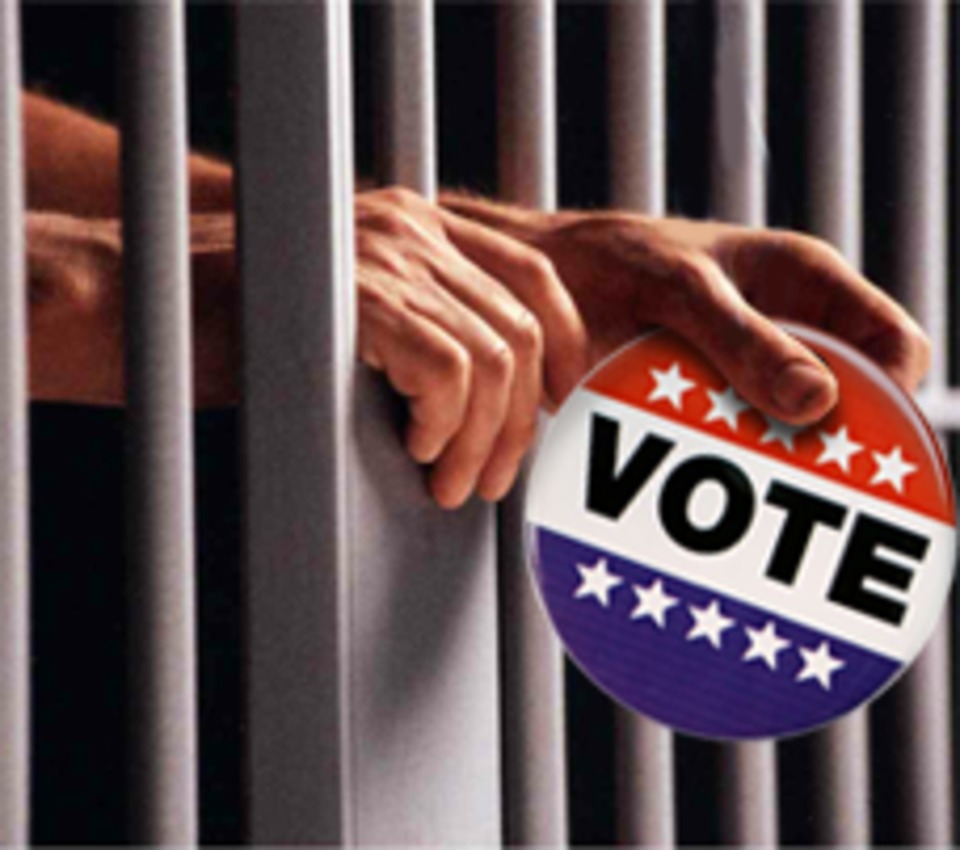
A federal court will begin hearing a case on Monday that could decide whether hundreds of thousands of newly enfranchised felons in the key swing state of Florida will be able to vote in November’s election.
A group of Floridians and voting rights organizations sued Republican Governor Ron DeSantis last June, arguing that a law that requires felons who served their time to pay all legal fines, fees and restitution before they can register to vote amounts to an illegal poll tax.
Moreover, Florida has no consolidated system for determining what felons owe or certifying that they have paid up, felons and voting rights groups say, making it virtually impossible for ex-offenders to prove they are eligible to vote.
In October, Judge Robert Hinkle at the federal court for the for the northern district of Florida ordered the state to begin preparing to assess a felon’s ability to pay what they owe, but DeSantis repeatedly appealed the order and took no apparent action.
Hinkle will preside over the trial via video link from Monday, but further appeals are likely, a prolonged tussle that could set back registration efforts for many of the estimated 1.4 million Florida felons whose right to vote was restored in a landmark Constitutional amendment that went into effect in January 2019.
DeSantis is a close ally of Republican President Donald Trump, and the case will be closely watched ahead of his November showdown with former Vice President Joe Biden, the presumptive Democratic nominee.
Florida is the biggest prize among electoral swing states with 29 Electoral College votes. Trump won the state by 113,000 votes in his victorious 2016 election, or 1.2 percentage points, but recent polls show Biden with a slim margin in Florida, gaining ground among older voters who make up a large chunk of the state’s electorate.
At least 775,000 Florida felons have outstanding legal financial obligations, and African Americans are more likely to owe higher sums, Daniel Smith, a political scientist at the University of Florida who will testify this week for the plaintiffs, said in a report submitted to the U.S. district court.
More than 45% of the felons Smith identified owed more than $1,000, and many say they are unable to pay.
Governor DeSantis’ office and the Florida Republican Party did not respond to requests for comment.
On April 17, just over a week before the start of the trial, the state filed documents that set out a procedure for determine how much a felon owes.
‘Waiting for the court‘
The Republican-led Florida Senate drew up the payments bill – requiring felons to settle all financial obligations before they can register to vote – just months after Floridians approved a constitutional amendment restoring voting rights to felons who have completed their sentences. DeSantis signed the bill into law in June 2019.
Conservatives argue that when the Constitutional amendment was voted on in 2018, it was understood to apply only to those who had paid financial obligations as part of their sentence. Those who campaigned for the amendment say voters wanted all felons who have completed their prison terms to be allowed to vote.
Florida’s Supreme Court in January issued an advisory opinion that supported the governor’s position, which concluded that the language requiring felons to have completed “all terms of sentence” included financial penalties as well as prison time.
Desmond Meade, executive director of the Florida Rights Restoration Coalition, said the legal fight has sowed confusion about who was eligible to vote just months before the Nov. 3 election.
“While we’re waiting for the court to rule, people are impacted. People want to register to vote,” said Meade, a convicted felon himself.
____
Republished with permission from Reuters.




3 comments
Anes11
April 26, 2020 at 8:50 pm
Just a way to permanently guarantee a Marxist/socialist will win. Look how close the race was with Gillum! Our local, state and federal governments have truly been infiltrated with the commies who hate Christianity, traditional values, free markets, and people of European descent.
Johny Reb "Seber" Trump
April 26, 2020 at 9:14 pm
The Felons have to pay the fines they owe. If they would not have committed a crime, they would not be in this situation. I have no sympathy for them. Dont do the crime if you cant pay the fine and restitution. Just pay up or shut up Felons.
Dana
April 30, 2020 at 2:53 pm
In 2018, Amendment 4 was passed by the people of Florida by over 64%, without any poll tax stipulations on the ballot. We, the people, want to restore felons with their right to vote. Once again, DeSantis and The Republicans are doing everything to suppress felons their right to vote and make this all about them. I am listening to the trial now and the Republicans are extremely discriminatory, political & fearful of a blue wave in Florida.
Comments are closed.